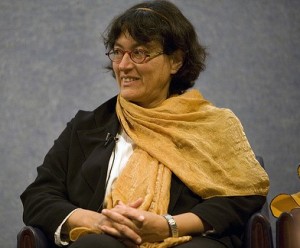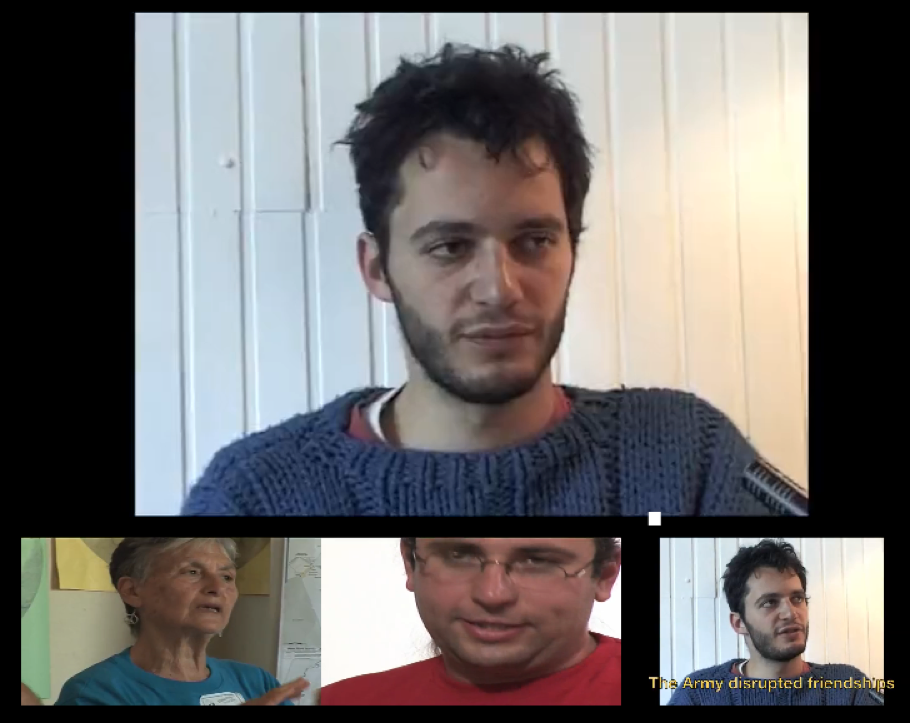The Only Democracy? » Discrimination » Hass: Quietest Year for Israelis, Worst Year for Palestinians
Hass: Quietest Year for Israelis, Worst Year for Palestinians
By Jesse Bacon.
Amira Hass quotes Palestinian Agriculture Minister Ismail Daiq as saying that “The year 2009 was the quietest for Israelis from the security point of view and the most violent for the Palestinians from the point of view of attacks by settlers in the West Bank.” This simple equation shows us that the Palestinians are not being punished for their own actions, rather for their simple existence.
Hass backs up Daiq’s quote with data from the Palestinian Monitoring Group for a single day.
That Wednesday, a total of 212 occupation-related incidents were recorded. Examples include: four physical assaults (which took place in the West Bank, and included civilians being beaten in Nablus and Jerusalem); one injury (a civilian hurt in a clash in Daan); eight military shooting attacks (two of which took place in Gaza, two were in the midst of raids, and one came from a military outpost; 39 army raids (one in Gaza); 28 arrests; and 12 detentions at checkpoints and in residential areas. The items on the checklist include home demolition (none that day), the leveling of agricultural land (one, in Gaza), and construction of the separation wall (at 22 locations).
The report also includes categories for property destruction (seven cases, including the destruction of wells and crops); checkpoint closure (eight cases at five checkpoints, including instances of impeded access); mobile (“flying”) checkpoints (23); permanent closure of village access roads (seven); closure of main roads (40, (including four in Bethlehem and 14 in Hebron, and the village of Jaba east of Ramallah); closure of main crossing points (four, including the permanent blockade of Gaza); disruptions at school (three cases, including the throwing of two tear gas canisters); violence on the part of settlers (one, in Sheikh Jarrah); demonstrations (one, in Hebron). The checklist also includes Palestinian attacks (none on that day).”
Hass identifies the things the report leaves out.
No statistics can express the emotional and social distress that accompanies every event and non-event, such as the incarceration of 1.5 million people inside the Gaza Strip or the fact that tens of thousands still have not been able to reconstruct homes that were damaged during the Israel Defense Forces offensive in the winter of 2008-2009.
The statistics do not include the practical difficulties that stem from this discrimination or the permanent insult it creates.”
Nor do these statistics include the discrimination of Palestinians inside Israel or the loss of freedom for all Israelis as their democracy contracts.
She goes on to cite similarly horrifying statistics about homes demolished and children detained on spurious charges or no charges at all. Her final paragraph is quite applicable to any US news article about the conflict.
Any news item we report that deals with Israeli rule over the Palestinians is misleading. It creates the impression that whatever has been reported is all that has happened on the Palestinian side and that otherwise everything is normal, or even flourishing. Any news item that is published in Israeli papers is a sign of what is missing, what no one wants to know.”
Here at The Only Democracy?, we want to know. And we also want to give you the stories of the people working to make sure there are no more such statistics.
Filed under: Discrimination · Tags: Amira Hass, Daily Life









 “You have a choice! Israeli Anti-Militarists Speak”
“You have a choice! Israeli Anti-Militarists Speak”